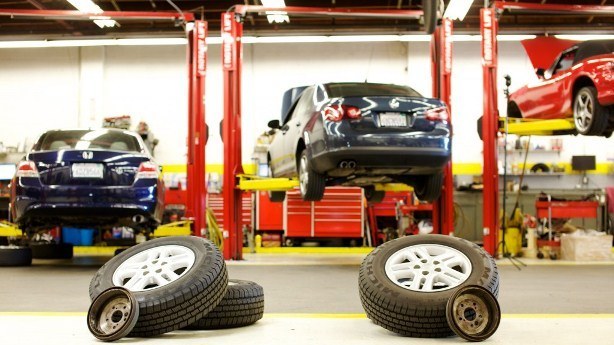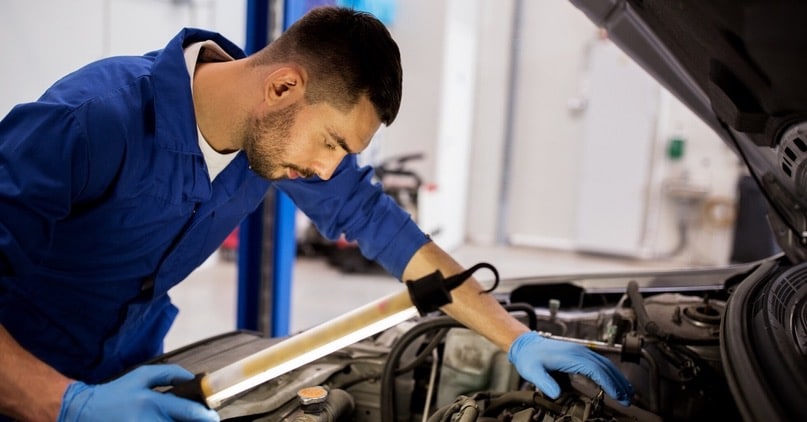All Categories
Featured

[/image]

Your vehicle's engine is the heart of your car, and keeping it in leading problem is important for optimum efficiency and long life. Regular engine tune-ups are a fantastic way to maintain your car's wellness, boost gas efficiency, and prevent costly fixings later on. Whether you're a car lover or somebody that simply wishes to keep their lorry running efficiently, these engine tune-up suggestions will certainly help you obtain one of the most out of your auto.
- Change Glow Plugs. Trigger plugs play an essential function in beginning your engine and ensuring smooth burning. With time, ignition system can become unclean or broken, resulting in misfires, minimized fuel performance, and rough idling.
During an engine tune-up, examine and replace your ignition system if needed. Many automobiles call for brand-new ignition system every 30,000 to 100,000 miles, depending on the kind. Consistently replacing ignition system makes sure proper ignition and ideal engine efficiency.
- Inspect and Clean the Air Filter. The air filter avoids dust, dust, and debris from entering your engine. A blocked or dirty air filter limits airflow, causing your engine to function harder and shed more gas.
Examine your air filter during a tune-up and change it if it's dirty. In messy environments or areas with hefty pollution, you might require to transform the air filter a lot more often. A clean air filter can improve gas effectiveness and expand the life of your engine.
- Evaluate and Change Belts and Tubes. Belts and hose pipes are important for numerous engine functions, such as powering the generator, water pump, and air conditioning system. Gradually, these components can split, battle royal, or wear out, potentially causing malfunctions.
During a tune-up, check belts and hoses for signs of wear and replace them if needed. Changing these components proactively can save you from costly fixings and prevent unforeseen failings.
- Clean the Gas System. Your fuel system, including the gas injectors and fuel lines, can gather dirt and carbon deposits in time, reducing engine performance. Cleaning up the fuel system during a tune-up assists enhance performance and fuel economy.
You can utilize a gas system cleaner or have a specialist mechanic carry out a much more extensive cleaning. This action is particularly crucial for older cars or vehicles that frequently drive in stop-and-go web traffic.
- Check the Battery and Charging System. A healthy and balanced battery is important for starting your engine and powering electric components. Throughout a tune-up, examine the battery terminals for deterioration and ensure the connections are limited.
Examine the battery's voltage and replace it if it shows signs of weakness. Furthermore, have the generator and billing system checked to guarantee your battery remains billed throughout operation.
- Modification the Engine Oil and Oil Filter. Oil changes are a fundamental component of engine maintenance. Engine oil lubes relocating parts, decreases friction, and assists regulate engine temperature. In time, oil becomes contaminated and loses its performance.
During a tune-up, replace the engine oil and oil filter to keep your engine running efficiently. Follow your vehicle's producer referrals for oil type and modification periods.
- Check the Air Conditioning System. The air conditioning system stops your engine from overheating. Over time, coolant can break down or become polluted, lowering its performance.
Check the coolant degree and condition during a tune-up, and flush and replace it if required. Examine the radiator, water pump, and tubes for leaks or damages. A well-kept cooling system assists your engine operate at the right temperature and protects against getting too hot.
- Evaluate the Ignition System. A damaged ignition system can trigger starting problems and minimized engine performance. Throughout a tune-up, evaluate the ignition coils, supplier cap, and blades (if relevant) Change any elements that show signs of wear or damages to guarantee smooth and dependable engine operation.
- Pay Attention for Unusual Noises. Throughout a tune-up, take the opportunity to pay attention for any type of unusual engine noises, such as knocking, ticking, or hissing. These noises can show underlying problems, such as valve troubles, loose parts, or exhaust leakages. Attending to these troubles early can avoid extra extensive damages.
- Usage Quality Components and Fluids. When carrying out an engine tune-up, constantly use premium components and fluids that meet your automobile supplier's specifications. Economical or incorrect parts can jeopardize your engine's performance and reliability.
Verdict: A Well-Tuned Engine is Trick to Long life. Routine engine tune-ups are necessary for maintaining your auto's efficiency, performance, and integrity. By replacing worn elements, cleaning vital systems, and resolving potential problems, you can keep your engine running smoothly for years to find. Whether you're doing it yourself or counting on a relied on auto mechanic, investing in tune-ups is a clever method to safeguard your vehicle and enjoy a much safer, smoother trip.
Latest Posts
Reasons Routine Car Maintenance at Montclare Auto Repair Keeps Your Wallet Happy
Find Out Save Big on Car Maintenance with Montclare Auto Repair’s Limited-Time Deals
Uncover Save Big on Car Maintenance with Montclare Auto Repair’s Limited-Time Deals
More
Latest Posts
Reasons Routine Car Maintenance at Montclare Auto Repair Keeps Your Wallet Happy
Find Out Save Big on Car Maintenance with Montclare Auto Repair’s Limited-Time Deals
Uncover Save Big on Car Maintenance with Montclare Auto Repair’s Limited-Time Deals